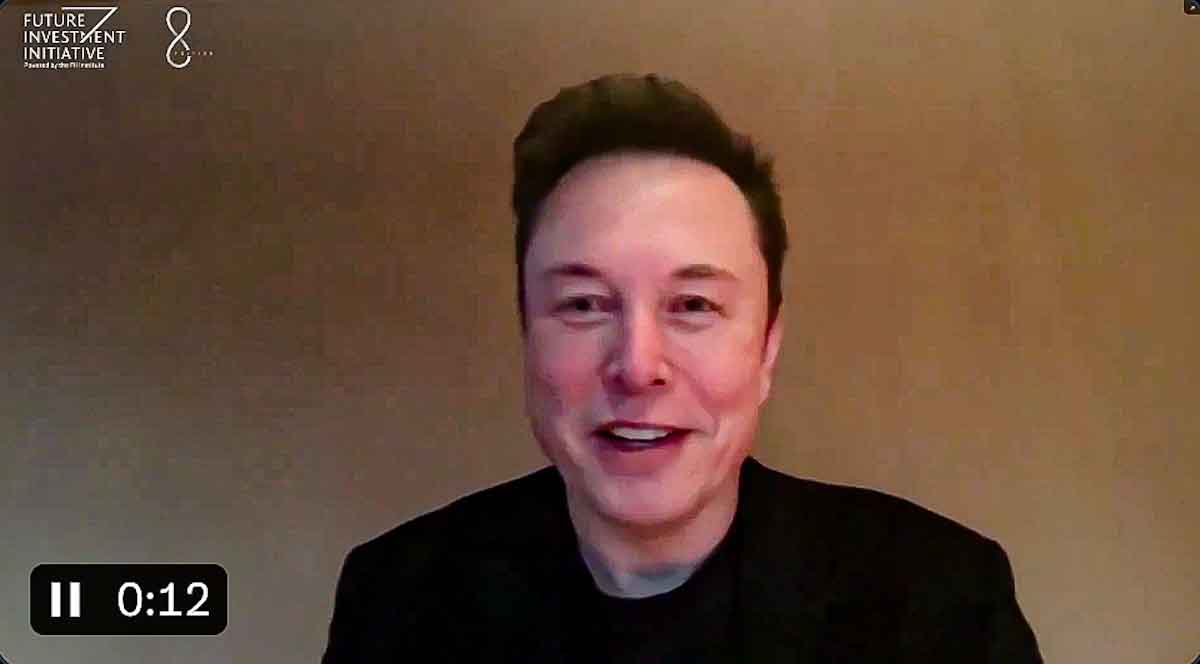Elon Musk, the visionary entrepreneur behind SpaceX, Tesla, and Neuralink, recently made a striking statement regarding the success of the Starship mission. He proudly highlighted that the entire mission was executed using human intelligence alone, without any reliance on artificial intelligence (AI).
His remark, “The future of AI might look at that and say, not bad for a bunch of monkeys,” is both humorous and thought-provoking, encapsulating the ongoing discourse on the relationship between human ingenuity and AI advancements.
“I’m glad to say that the Starship mission was done entirely with human brains without any use of AI
The future of AI might look at that and say not bad for bunch of monkeys.”
Elon Musk
pic.twitter.com/34IKzzqQUM— Tesla Owners Silicon Valley (@teslaownersSV) February 19, 2025
A Triumph of Human Engineering
The successful execution of the Starship mission without AI involvement is a testament to the power of human intelligence, creativity, and problem-solving abilities. In an era where AI is being increasingly integrated into every aspect of technology, Musk’s statement underscores the unparalleled capabilities of human minds.
While AI has revolutionized industries with its computational efficiency, pattern recognition, and automation, this achievement reaffirms that human intuition, adaptability, and decision-making remain irreplaceable in complex and high-stakes scenarios like space exploration.
Starship, the most powerful rocket ever built, represents a groundbreaking step in humanity’s quest for interplanetary travel. Its development required an immense amount of engineering expertise, rigorous testing, and innovative problem-solving—all driven by human intellect.
The absence of AI in this mission indicates that, despite rapid advancements in artificial intelligence, human engineers still hold the key to pushing technological boundaries.
Musk’s Perspective on AI and Human Potential
Elon Musk has long been vocal about both the potential benefits and risks of AI. He has repeatedly warned about the dangers of unchecked AI development, emphasizing the need for responsible oversight.
His statement on Starship’s success without AI could be interpreted as a subtle reminder that humans should remain in control of technological progress rather than becoming overly dependent on machine intelligence.
The phrase “not bad for a bunch of monkeys” humorously references humanity’s evolutionary origins while emphasizing the extraordinary achievements we have made. Despite AI’s rapid evolution, Musk’s comment implies that humans still possess unique qualities—such as creativity, emotional intelligence, and ethical reasoning—that set us apart from artificial systems.
This sentiment aligns with his broader philosophy that AI should be developed as a tool to augment human capabilities rather than replace them entirely.
The Role of AI in Future Space Missions
While Starship’s success without AI is commendable, it does not mean AI will be absent from future space missions. AI is already playing a crucial role in space exploration, from autonomous navigation in Mars rovers to analyzing vast amounts of astronomical data.
NASA and private space companies increasingly use AI-driven models to enhance mission efficiency, predict equipment failures, and optimize trajectories.
SpaceX itself has leveraged AI in various ways, such as in the autopilot systems of Falcon 9 and Dragon spacecraft. However, Musk’s recent statement suggests that human expertise remains the foundation of cutting-edge space exploration.
AI may assist in calculations, automation, and data processing, but humans will continue to be the driving force behind visionary projects like Starship and future missions to Mars.
Balancing AI and Human Ingenuity
The debate over AI’s role in human progress is ongoing, and Musk’s statement adds an interesting dimension to it. While AI can significantly enhance efficiency and accuracy, it lacks the intrinsic human qualities of intuition, creativity, and ethical decision-making.
The success of Starship without AI proves that human potential is still unmatched in complex problem-solving and innovation.
However, this does not mean that AI should be sidelined. The key is to strike a balance where AI serves as an empowering tool rather than a replacement for human expertise.
In the coming decades, the most successful technological advancements will likely be those that integrate AI while preserving human ingenuity at their core.
Remark:
Elon Musk’s remark on the Starship mission being accomplished without AI serves as a powerful reminder of human brilliance. In an age where AI is rapidly advancing, this achievement reinforces the idea that human intelligence, adaptability, and creativity remain invaluable.
As AI continues to evolve, it should be harnessed to complement and amplify human potential rather than overshadow it.
Ultimately, Musk’s words highlight a fundamental truth—while AI may become incredibly advanced, the essence of human innovation and exploration will always be at the heart of humanity’s greatest achievements. The future of AI may indeed look back at this moment and acknowledge: “Not bad for a bunch of monkeys.”
